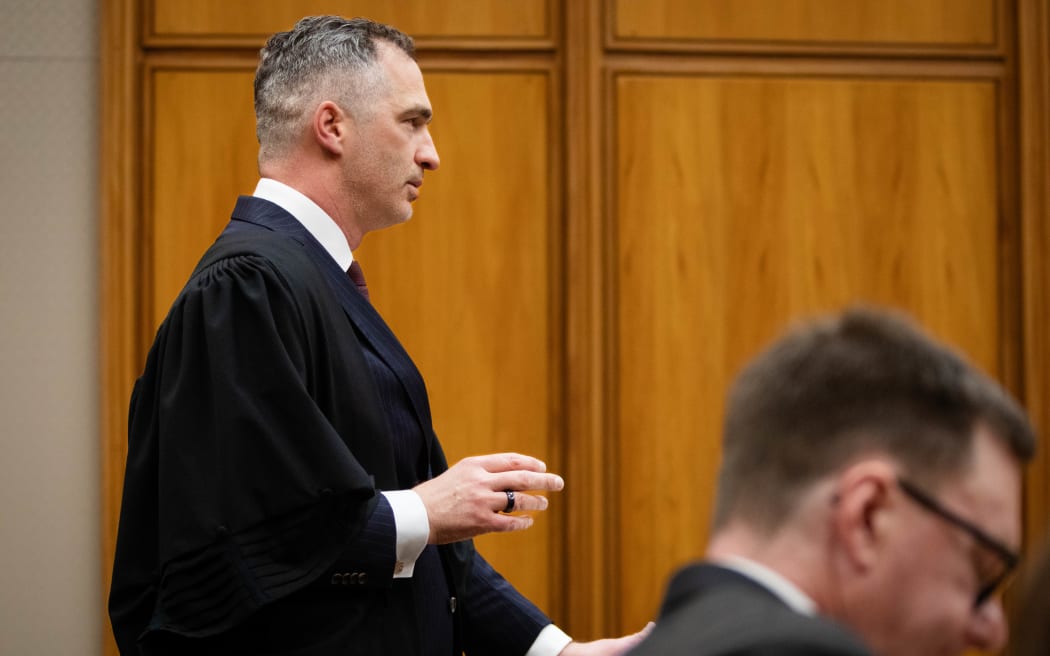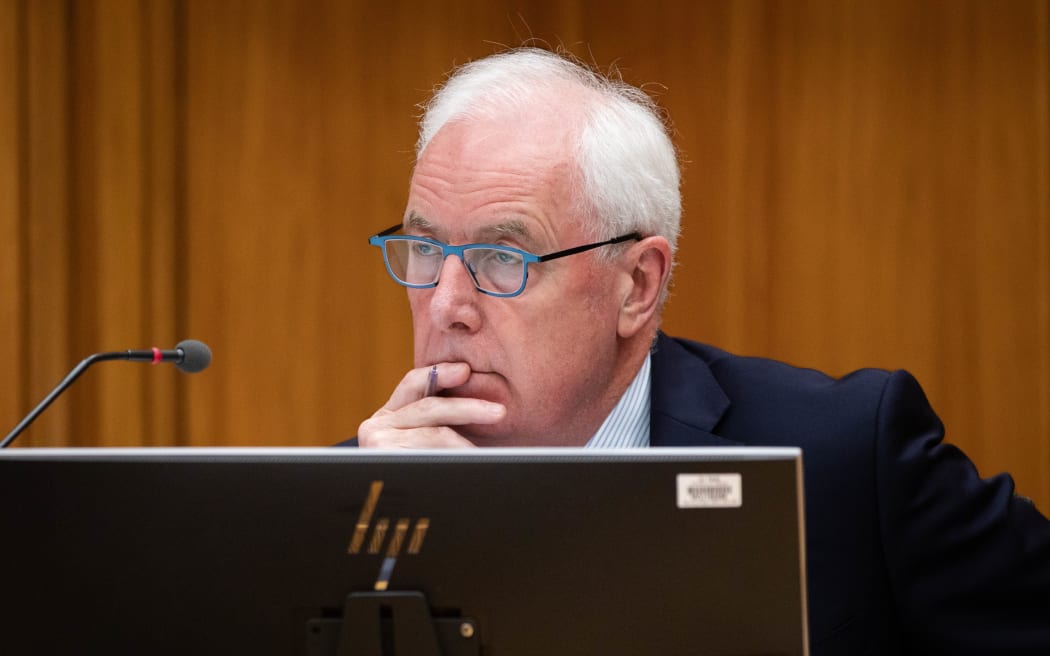
Kim Dotcom's lawyer Simon Cogan in Tuesday's Court of Appeal hearing in Wellington. Photo: RNZ / Angus Dreaver
Kim Dotcom is fighting a judge's decision that would see his hard-drives and passwords released to the United States' FBI.
The controversial billionaire behind now-defunct data-sharing website Megaupload has been at the centre of multiple litigations in New Zealand, after armed police stormed his Auckland mansion in 2012 and seized hundreds of devices.
He is now appealing a High Court ruling that found the devices - which also hold private family photos and videos of the birth of his children - could be sent to aid the FBI's copyright prosecution.
At a hearing in the Court of Appeal in Wellington on Tuesday, Dotcom's lawyer Simon Cogan argued that the law under which the material would be released to US authorities only applied to the criminally-relevant information on the devices, rather than the hard-drives themselves. Sending the entire devices would be against the Bill of Rights, Cogan said, submitting that New Zealand police should sift through the material first.
"What they can do, and do in fact do in these mutual assistance or extradition-type scenarios, is work closely with their counterparts," he said.
"It's entirely possible to identify what material would be relevant to those allegations and what wouldn't ... photographs, music, videos, etc are at a technical level quite capable of being identified."

Justice Brendan Brown at the Court of Appeal hearing in Wellington. Photo: RNZ / Angus Dreaver
It follows a High Court ruling that found there was too much data on the hard-drives to cherry-pick what was needed, and doing so would undermine evidential integrity.
Crown lawyer David Boldt agreed, saying New Zealand was obliged under international agreements to help American investigators to the extent it could under domestic laws.
Local authorities should not be tasked with deciding what was relevant to FBI prosecutors, he said.
"For example a lot of the content on these devices is music - now, we don't know whether a particular music file might actually be relevant ... [to] a case involving large-scale copyright breach. It could be relevant or it could just be lawfully-obtained material Mr Dotcom was listening to."
The entrepreneur had previously also agreed [and was later ordered by a judge] to disclose his passwords to authorities so they could access encrypted material on the devices, but this never happened.
Cogan said Dotcom had willingly agreed to give his passwords to New Zealand authorities, but did not agree to them being handed over to the FBI. In addition, American agents had unlawfully taken copies of some of the seized devices back to the US in 2012. An order to strip them of private data had since been made, but investigators may have access to other encrypted personal material if they received Dotcom's passwords, he said.
However, Boldt said the resistance was no longer relevant, as the finding that the personal material should have been removed had since been overruled, meaning there was no reason not to give the FBI the passwords.
The judges reserved their decision.
It comes after two key figures in the Megaupload case were sentenced at the Auckland High Court in June.




